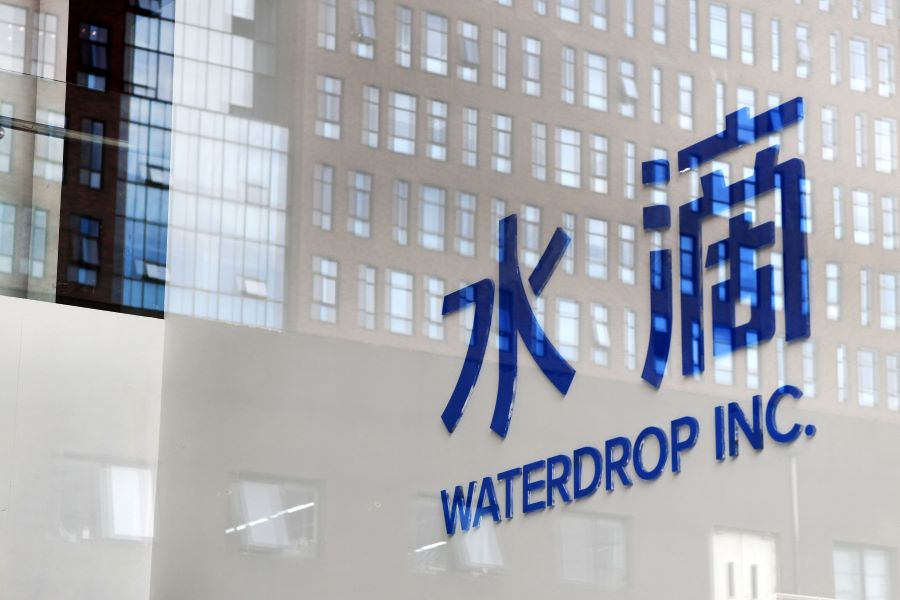Online Insurance Broker Waterdrop Makes Splash, Then Crash, in New York IPO

Company raises $360 million after pricing shares at the top of their range, only to see stock tank nearly 20% in trading debut
Key points:
- Waterdrop’s position as a middleman insurance broker should help protect it from regulatory risk in China’s sensitive financial services sector
- The company’s strong IPO pricing, followed by a sharp selloff in its trading debut, reflect investor indecision about its growth prospects
By Doug Young
Middlemen are creatures of little or no respect, often seen as parasites that profit from a gap between businesses and the final customers they’re trying to reach. In the internet age especially, such middlemen are increasingly getting squeezed out as it becomes easier for businesses to directly find and serve the actual end users of their products.
But in China, one of the few areas where playing the middleman still makes good business sense is the heavily regulated and super-sensitive realm of financial products and services. Waterdrop Inc. (NYSE: WDH) is the latest company seeking to play such a role in that space.
The online insurance broker and medical crowd-funding intermediary made both a splash and a crash with its New York IPO last week, as investors puzzled over what to make of the company.
Things looked quite positive going into the offering. Waterdrop’s American depositary shares (ADSs) priced at the top of their range at $12, raising $360 million and valuing it at about $3.7 billion – not bad for company whose main businesses launched just five years ago. But then panic set in, as if investors were suddenly not so sure about what they were buying into.
The resulting sell-off saw Waterdrop’s shares tumble nearly 20% on their first trading day on Friday to end at $9.70, below even the bottom of their original price range.
So what happened? We’ll try to answer that question lower down. But first, let’s step back and look at Waterdrop’s business and why it looks relatively appealing in China’s complex market for financial products and services. We should start by noting that this market, which includes everything from banking to insurance and stock brokerage services, was almost completely controlled by state-owned companies as recently as a decade ago.
Then Beijing decided to take a chance on its young private sector, hoping it could breathe some new life into the space by challenging the slow-moving state-owned players. The result was a free-for-all that produced the likes of Ant Group, the Alibaba-backed fintech giant that made gobs of money off China’s booming economy but also worried regulators due to its disregard for risk.
Those worried regulators decided the Ants of the world were just too risky for the economy as their influence grew. That led to a major crackdown on the group starting around two years ago that reached a climax with the 11th hour collapse of Ant’s mega IPO late last year.
With all that background in mind, one can start to see why playing the middleman in this particular industry looks like a smart business decision. That’s exactly how Waterdrop has positioned itself, setting up shop as a broker for health and life insurance policies, as well as for people looking to crowd-fund to pay for expensive medical treatments.
Both niches are sorely needed in China, which still hasn’t quite figured out how to adequately provide medical services for its 1.4 billion people in its transition from socialist to market economy.
Business Opportunity
Waterdrop’s prospectus is filled with facts and figures that show just how big a business opportunity its two major markets represent. It cited market research firm iResearch saying China’s insurance penetration was just 4.3% in 2019, compared to around 10% for developed countries like the U.S. and Japan.
It also noted that middlemen brokers like itself are becoming increasingly important in the market, with their combined annual revenue forecast to grow 60% annually between 2019 and 2024, by which time their sales should account for about 13% of all life and health insurance policies sold.
The low insurance penetration combined with spotty coverage from the country’s young national health plan means many Chinese lack the resources to deal with major health crises. That creates a strong opportunity for Waterdrop’s other major business acting as middleman for medical crowd-funding services, which raised 37 billion yuan ($5.8 billion) for 1.7 million patients last year.
In terms of top and bottom lines, the company’s revenue roughly doubled and its net loss widened significantly last year to 3 billion yuan for the former and a 664 million yuan loss for the latter. The company’s operating loss grew at an even faster rate to nearly 500 million yuan from about 200 million yuan in 2019.
The fact that the loss is growing at the same rate or even faster than revenues could be slightly worrisome, as it indicates the company isn’t really achieving any economies of scale just yet. But again, let’s not forget that Waterdrop has only been operating for five years.
If we add the company’s total insurance premiums of 14.4 billion yuan last year to its 37 billion yuan in crowd funding, some simple math shows it took in about 17% of all that money as revenues, mostly as service fees. Again, that looks like a relatively healthy margin for this kind of middleman business.
From a peer perspective, one of the best comparisons may be ZhongAn Online, an online-only insurance company set up by Alibaba, Tencent and Ping An Insurance in 2013. Despite that pedigree and its relatively long operating history, ZhongAn only turned its first meaningful profit last year and, based on that, now trades at a lofty price to earnings (PE) ratio of 114.
ZhongAn’s stock hasn’t fared too well over that time, currently trading about 27% below the listing price from its 2017 IPO. But it’s also worth noting that ZhongAn is a direct seller of insurance, not a middleman like Waterdrop. And the company has also received relatively little support from its wealthy founders.
At the end of the day, Waterdrop should arguably be able to reach breakeven faster than ZhongAn due to its more flexible and less capital-intensive middleman role. And unlike ZhongAn and Ant, the company is in a relatively secure regulatory position, meaning it can focus on building out its business without worrying about when the next crackdown will come. Now it just remains for investors to understand those differences.
To subscribe to Bamboo Works weekly newsletter, click here






